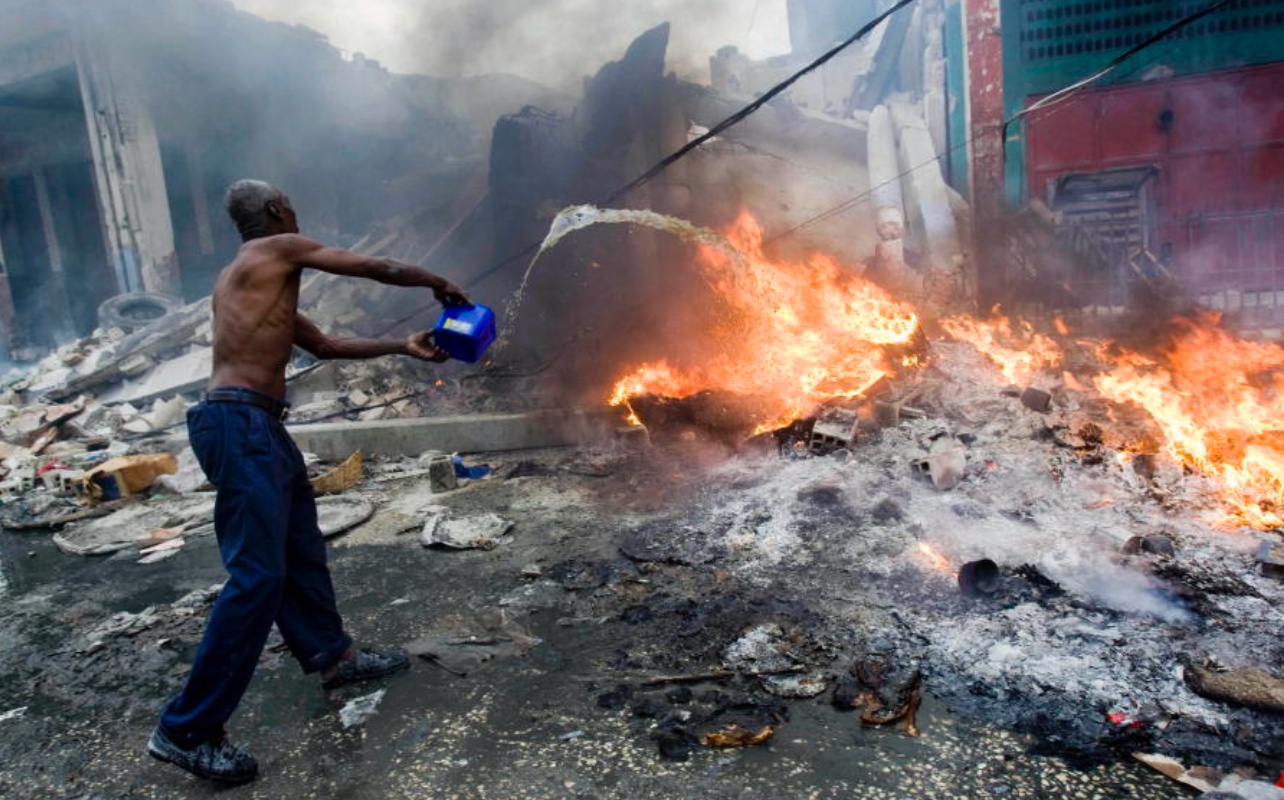March 18, 2024
Haitians are seemingly fighting to control the destiny of their own country, while international powers continue to interject themselves.
Haiti’s embattled Prime Minister Ariel Henry resigned March 12, but the conditions that have created instability on the island nation remain. As NBC News reports, several factors, including the 2010 earthquake that led to a humanitarian disaster, are at play in Haiti.
According to the outlet, the transitional council that the United States and CARICOM had a hand in creating are part of the problem and are part of the reason that Haiti is in an untenable situation. Both humanitarian workers in and residents of Haiti believe that Haitians, not outside forces, should be allowed to determine how Haiti moves forward.
Greg Beckett, an associate professor of anthropology at Canada’s Western University told NBC News, “What we’re seeing in Haiti has been building since the 2010 earthquake.”
Indeed, reporting from Vox corroborates this claim, and the point-of-view of the humanitarian workers in Haiti. Henry was backed by the United States, Canada, and France among other international actors as the legitimate leader of Haiti even though he was incredibly unpopular and never officially sworn in as prime minister. In contrast to propping up Henry, Vox reports, those countries could have actively collaborated with Haitian-led groups that offered solutions toward a viable democratic future for the country.
As Jake Johnston, a senior research associate at the Center for Economic Policy and Research, told Vox, the conditions in Haiti, including the gangs, which Vox reports are more accurately described as armed political actors fighting for control of the country, are all symptoms of a broken social contract between the government of Haiti and its people.
Johnston also told Vox that Haitians are the one actively fighting to control their own destinies, not the international powers interjecting themselves. They should be kept in mind as Haiti determines its future.
“There’s amazing organizing happening every day in Haiti, whether it’s at the capital or in rural communities,” Johnston said. “It’s super important to keep that at the forefront that Haitians are the ones fighting for their future every day and putting their lives on the line to do it.”
As NBC News reports, though the gangs are intimately intertwined with Haiti’s political class, they have have found freedom due to elected officials not really being a factor anymore. They have, according to a report from the Uppsala Conflict Data Program, been instrumental in the increase in killings, kidnappings, and rapes since the 2021 assassination of President Jovenel Möise.
“January and February have been the most violent months in the recent crisis, with thousands of people killed, or injured, or raped,” Beckett said.
Meanwhile, Jemima Pierre, a Haitian scholar and professor at the University of British Columbia in Vancouver, told NBC News foreign intervention is not the answer to solve Haiti’s problems. “What you have over the last 20 years is the consistent dismantling of the Haitian state. What intervention means for Haiti, what it has always meant, is death and destruction.”
Pierre discussed the proposed UN peacekeeping force that was to be led by Kenya, whose courts have since declared it unconstitutional.
“A force like Kenya, they don’t speak Kreyòl, they don’t speak French,” Pierre said. “The Kenyan police are known for human rights abuses. So what does it tell us as Haitians that the only thing that you see that we deserve are not schools, not reparations for the cholera the U.N. brought, but more military with the mandate to use all kinds of force on our population? That is unacceptable.”
As Vox reported, there is also the chance that the gangs of Haiti will not accept the rule of the transitional council, or Haitian society for that matter, because of the fact that it was proposed by the same outside actors who have historically abused Haiti and its people. This is a concern that has validity if Jimmy Chérizier, the leader of one of Haiti’s main gangs, G9 Family and Allies, is a barometer for how they feel.
As Chérizier told the Associated Press, “It’s the Haitian people who know what they’re going through. It’s the Haitian people who are going to take destiny into their own hands. Haitian people will choose who will govern them.”
Enter your Email Address below to get our fun-filled Newsletter!
© 2024 Black Enterprise. All Rights Reserved.

